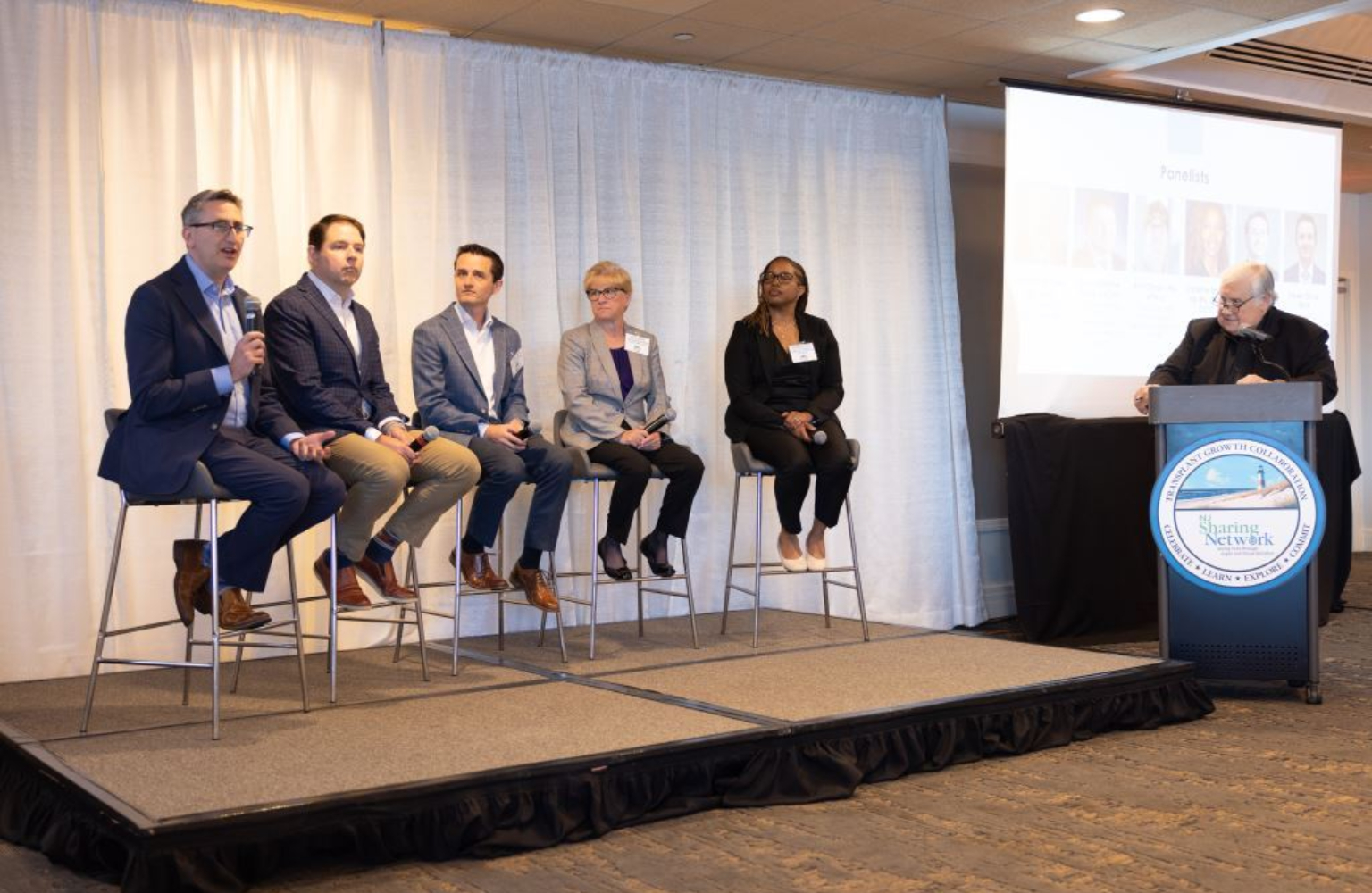On May 31, NJ Sharing Network hosted its first-ever Transplant Growth Collaboration meeting, which brought hospital leaders from across the country together. The event was held at the Oyster Point Hotel in Red Bank, NJ.
The event proved to be a major success, providing professionals with a space to discuss innovative practices focused on increasing the rate of successful transplantations and ultimately leading to more lives being saved.
The meeting was hosted by NJ Sharing Network and endorsed by the Organ Procurement and Transplantation Network (OPTN). It included representatives from all six of New Jersey’s transplant centers and 8 of New York’s. The event focused on critical discussions centered around overcoming challenges and creating effective methods to increase deceased donor organ transplants.
“We believe this event and future Transplant Growth Collaborations have the potential to revolutionize the way transplants are conducted,” said Carolyn M. Welsh, MS, President and CEO, NJ Sharing Network. “We took pride in hosting this event in New Jersey as we have experienced five consecutive years of organ donation growth thanks to our healthcare partners and the generosity of those in the Garden State who say ‘YES’ to giving the gift of life. This collaboration is a significant step towards driving positive change and saving more lives through collective action and innovation.”
Included in the event were presentations and discussions centered around successful transplant programs, including Hackensack University Medical Center’s nationally leading kidney transplant program. Those in attendance were able to become more knowledgeable on successful transplant programs and what allows them to work so well.
According to research from the United Network for Organ Sharing (UNOS), there are more than 100,000 Americans, 4,000 of whom live in the Garden State, who are currently waiting for a lifesaving organ transplant. Being able to save one’s life through a transplant is actually very rare, as only 3 out of every 1,000 people pass in a way that allows for deceased organ donation.
In 2023, the OPTN created the Expeditious Task Force, which helps develop different methods to increase the number of successful transplants and improve organ allocation efficiency. The Task Force has set a goal of increasing the number of deceased donor transplants from 39,680 in 2023 to 60,000 in 2026.











